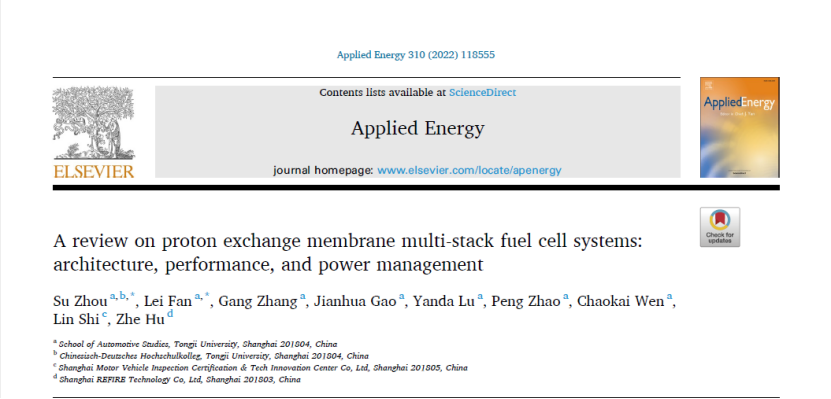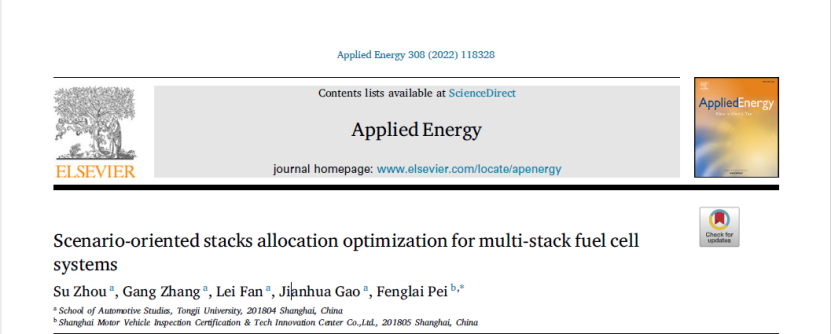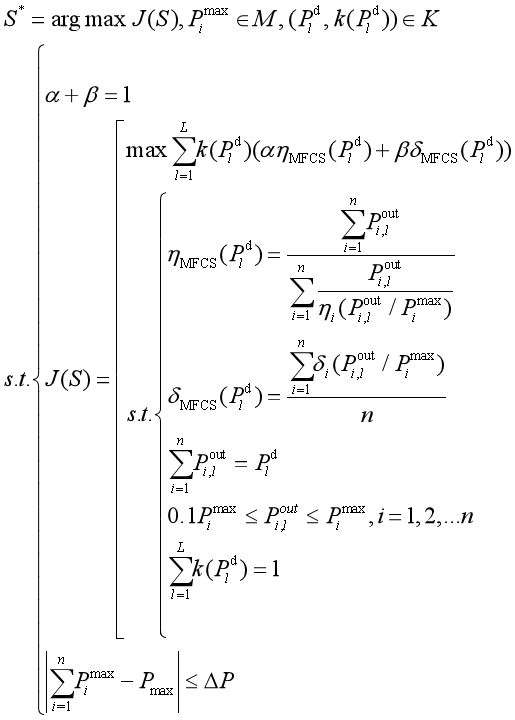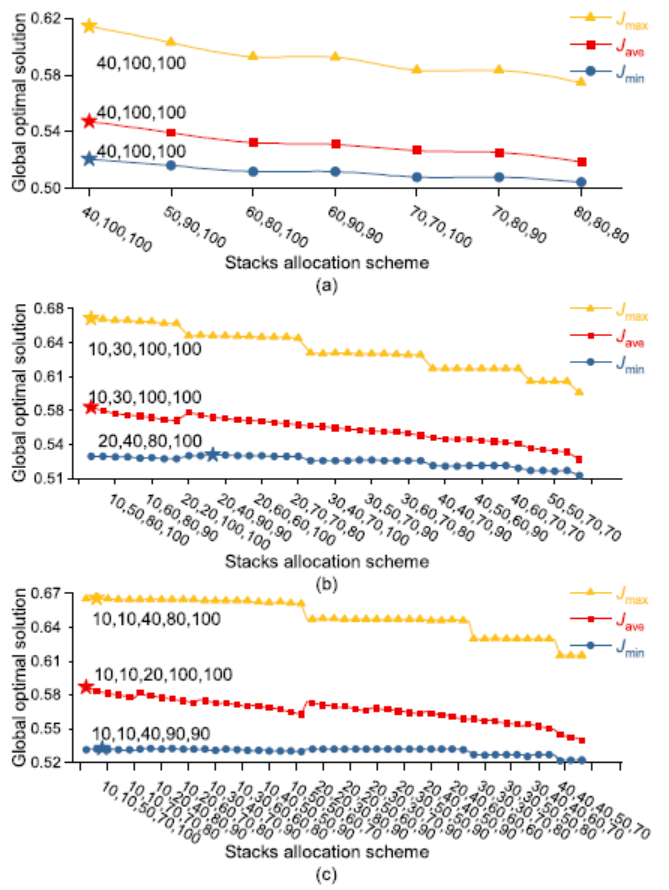Recently, Professor ZHOU Su's team of the School of Automotive Studies has made research progress in multi stack fuel cell system overview and optimal distribution of electric stacks. Two research papers "a review on protocol exchange membrane multi- stack fuel cell systems: architecture, performance, and power management" and "Scenario-oriented stacks allocation optimization for multi-stack fuel cell systems" were published online, with Professor ZHOU as the first author, in Applied Energy.

A review on protocol exchange membrane multi stack fuel cell systems: architecture, performance, and power management” published online

"Scenario-o-oriented stacks allocation optimization for multi--stack fuel cell systems" were published online
The development and application of multi-stack fuel cell system (MFCs) is an inevitable way to improve the output power of the fuel cell system. In his paper "a review on proton exchange membrane multi stack fuel cell systems: architecture, performance, and power management", Professor ZHOU summarized in detail the relevant R & D activities and progress of MFCs, including the application and design principles of MFCs, subsystem structure (fluid, electrical and thermal), power management strategy (PMS), hydrothermal management strategy, degraded working mode, service life, efficiency and hydrogen consumption. The advantages of MFCs over single stack fuel cell system (SFCS) are discussed, and the application prospect and challenges of MFCs are analyzed in the paper.
In his paper "Scenario Oriented stacks allocation optimization for multi-stack fuel cell systems", Professor ZHOU proposes a mathematical model for optimal allocation of MFCs stacks, which takes efficiency and life as the comprehensive optimization index and takes the power output range, efficiency and life characteristics of each stack as the constraint boundary. The working scenario of C-WTVC is transformed into application with statistical significance in mathematics through the power distribution histogram. In a specific application scenario, the optimal stack allocation scheme can be obtained by solving the mathematical model of MFCs stack optimal allocation.


The research of MFCs is of great significance to understand how to improve the output power of fuel cell system to meet the needs of high-power application scenarios, and to distribute the required power in high-power application scenarios to each existing mature stack for efficient output, which can provide an insight into the design of new high-power clean power system in the future.